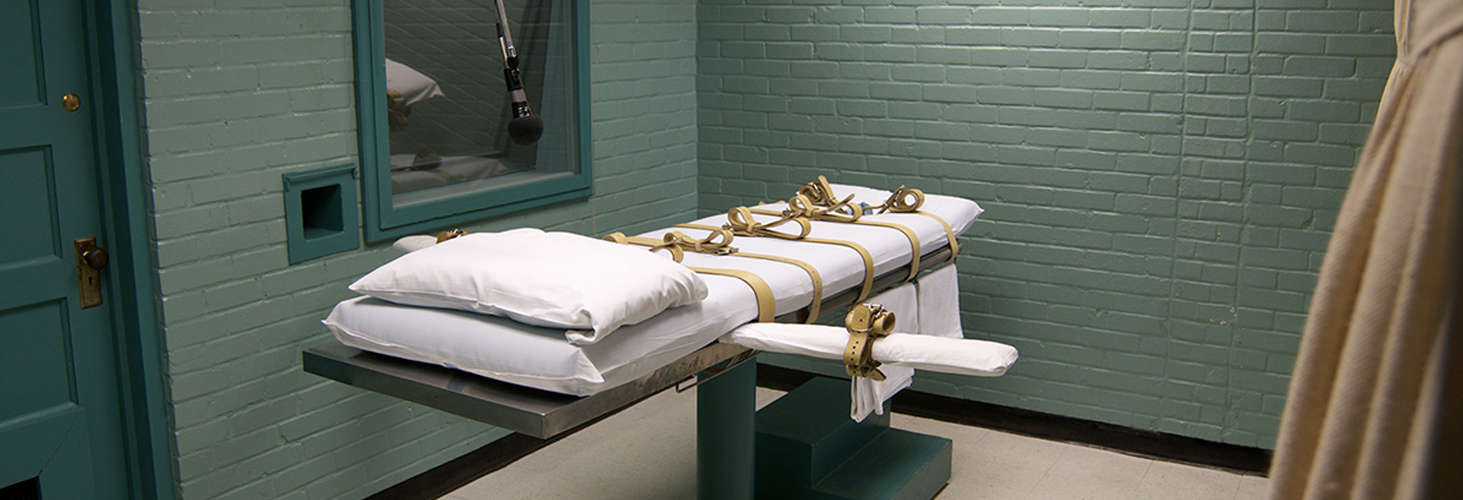By Chip Brownlee
Alabama Political Reporter
MONTGOMERY — Alabama’s House of Representatives, on its first day back from spring break, is expected to take up a bill that would end the State’s judicial override sentencing system.
On Tuesday, the House is expected to begin debate, and maybe vote, on the bill sponsored by Rep. Chris England, D-Tuscaloosa. England’s bill would prohibit a judge from overriding a jury’s recommended sentence of life to impose the death sentence instead.
Under England’s bill, a unanimous jury would have to vote for death for a defendant to receive the sentence, which would bring Alabama in line with almost all other states with capital punishment.
“I think it’s clear that the will of the body is there to do something about judicial override overall,” England said in an interview with the Alabama Political Reporter last month. “I think there may be a couple of differences of opinion about the specifics like unanimity of the jury. I think it will work itself through the process.”
Last year, Alabama became the last state in the US with judicial override after the US Supreme Court ruled against Florida’s sentencing scheme. Over the next several months, the Florida Supreme Court and the Delaware Supreme Court killed judicial override in both of those states.
But the US Supreme Court in January refused to hear a challenge to Alabama’s system of judicial override from several death row inmates, including 74-year-old convict Thomas Arthur, who — after another Supreme Court decision last month — will be scheduled for his eight execution.
Arthur escaped seven previous execution dates unscathed because of several appeals.
Even with Alabama’s legal victories, the State’s system remains the only “hybrid sentencing system” in the country. Juries give a nonbinding advisory sentence — either for death or for life — and the judge then makes the final determination. This was one factor that perhaps insulated Alabama’s system from Supreme Court review.
In Arthur’s case, his trial jury voted 11-1 for an advisory verdict of death, but the vote wasn’t unanimous, as most other states’ death-penalty sentences require. Under England’s bill, Arthur would not have gotten the death penalty.
Since 1976, more than 92 percent of 107 overrides have resulted in a judge imposing the death penalty when a trial jury voted to recommend life in prison, according to Montgomery’s Equal Justice Initiative.
“My opinion is that [ending judicial override] restores faith in the outcome of the cases,” England said. “There’s some belief there that some judges who are politically motivated and want to give the appearance that they’re tough on crime to help their chances at re-election. I think that this will restore public confidence in the process going forward.”
The Supreme Court decisions this year effectively ruled Alabama’s system constitutional, but that didn’t stop 30 senators from passing a similar bill by Sen. Dick Brewbaker last month. The bill, which England also supports, has gotten wide bipartisan support and would require at least 10 jurors to vote for death.
Only one senator, Sen. Tripp Pittman, R-Daphne, voted against Brewbaker’s bill in the Senate. Pittman said after the vote that he trusts the State’s judges to make the right decisions when it comes to the death penalty.
“I have confidence in judges sitting through trials that are very complicated,” Pittman told APR. “Judges have my confidence to have that discretion. I think it’s important. … I do support the death penalty. I do think that the judges need that prerogative. Sometimes crimes are just so heinous that they rise to that level.”
It is unclear if England’s bill in the House will get the same level of support that Brewbaker’s did in the Senate. The question of unanimity of the jury could hold it up in the Legislature’s lower chamber.
Brewbaker’s bill is still waiting for its time on the House floor. If it is substituted for England’s bill tomorrow, and it passes, then it could head to the Governor’s Office for his signature. If England’s bill is passed unchanged, it would require another vote by the Senate before being sent to the Governor’s desk.
Email Chip Brownlee at [email protected] or follow him on Twitter.



















































